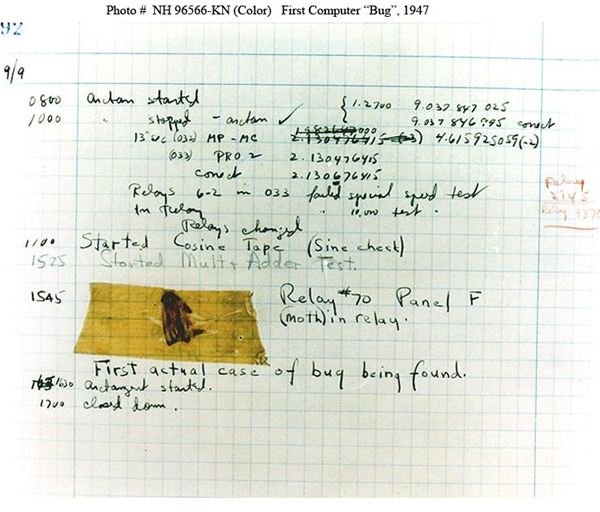In What Year Was the First Computer Bug Reported?
The notion of the computer bug has become so common to computer users that people no longer really think about the term. Yet the truth is that the history behind the computer bug is one that is quite interesting. From the original computer bug that created the term to the growth in the use of the term understanding how this term came to use can help you understand the ways that computers have changed.
The First Actual Bug
One of the stories that is often told about the computer bug is the discovery of the first literal computer bug. This bug was discovered in the Harvard University Mark II Aiken Relay Calculator on September 9th 1947. The Relay Calculator was a primitive computer that used large relays, and a moth had been trapped between two points of that relay. This caused a connection which wasn’t meant to be there and created odd reactions from the computer.
While this story is often told as the origin of the term, this may not be the correct answer to the question of when was the first computer bug found. The best evidence that the term had been used is in the record of this date which reads, “First actual case of bug being found." This statement implies that they had used the case figuratively in the past. This is also said to be the first use of the concept of debugging a computer. This is more possible as bugs in previous incarnations were generally not in machines that could be fixed in that way.
Still, while this isn’t the origin of the term, it is one of the most famous of the computer bugs and almost certainly helped to popularize the term in the general public. The actual bug is the Naval Surface Warfare Center Computer Museum and it is unlikely to ever be fully removed from the idea of the computer bug.
Thomas Edison
Although clearly not referring to a computer bug, the term ‘bug’ was used by Thomas Edison and others as electricity came into common use. In this term it was used to refer to defects in the equipment rather than software. In one letter Thomas Edison wrote, “…then that ‘Bugs’ — as such little faults and difficulties are called—show themselves…” This clearly uses the concept of the bug in a virtually identical way to the modern use of computer bugs with the only real difference being that there was no computer at this time. Still, it is not clear that this was the origin of the term only that it was used at this time. While Thomas Edison did invent a great many things, it is unlikely he created the term ‘bug’ in reference to errors in a technological device.
Telegraphs

One possible origin for the term bug can be found in the telegraph wires. To understand this, one must understand a bit about Telegraphs. Using Morse code, the original telegraphs were manual and as the technology advanced more automatic telegraphs were used. These were faster to use, but without training the messages could become garbled. These newer telegraphs were called bugs and so the idea of garbled Morse Code being sent by them could have led to the idea of the messages themselves being bugged. With the Telegraph also being one of the major forms of communication at that time it is also likely that this term could have been easily spread.
William Shakespeare
If one wants to find the origin of just about any phrase that is used in the English language, the first place to check is the immortal bard and surprisingly enough there is some hint to a possible connection to the modern term. If you read Henry VI, part III, Act V, Scene II, King Edward says, “Die though; and die our fear; For Warwick was a bug that fear’d us all.”
This is a different use of the word bug, but it seems likely that this does have some, at least minor, connection to the later use of the term as both do refer to an event, idea or person that is disruptive. Where this actually led to the later use of the term computer bug in any way isn’t clear, but it is interesting.
While the story of the first computer bug appearing in 1947 is often accepted as the truth, the question of when the first computer bug was reported is a bit more difficult to answer. Yet while the true answer may not be as simple, understanding the true history of the bug tells us far more about the technology involved than the simple story.
